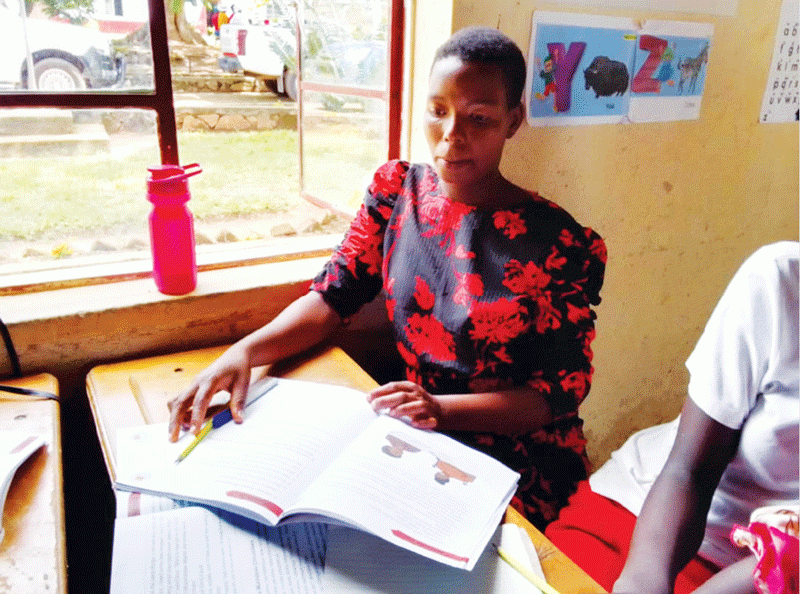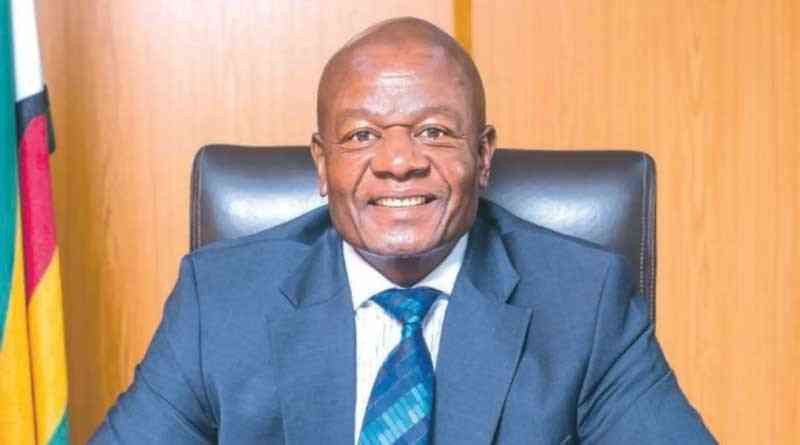
SAHUMANI, HONDE VALLEY - IN the serene landscape of Sahumani village in Honde Valley, an 18-year-old young mother, Praise Mubare, sits proudly at her desk at Sahumani Primary school, with a flurry of books and notes surrounding her.
Her radiant smile and gleaming eyes reveal a moment steeped in significance — this is the first time she has ever stepped foot in a classroom.
Thanks to the Supporting Adolescent Girls Education (Sage) programme, a vital component of the Teacher Effectiveness and Equitable Access for All Children (Teach) initiative, Mubare embodies hope and determination as she finally fulfils her dream of attending school.
The Sage programme targets adolescent girls aged 10 to 19, providing them with foundational literacy and numeracy skills.
Beyond academics, it offers vocational skills training, crucial for empowering the community.
Funded by the UKAid and implemented by Plan International Zimbabwe in collaboration with the Government of Zimbabwe, the initiative is designed to uplift the lives of marginalised girls like Mubare.
Other partners implementing the programme through the non-formal education concept include Christian Blind Mission, Open University and Apostolic Women Empowerment Trust.
In Zimbabwe, non-formal education serves as an alternative to formal schooling, reaching students who have either dropped out or cannot access traditional education.
- Interview: Clean energy: Solar is Zim’s easy win
- Interview: Clean energy: Solar is Zim’s easy win
- Feature: Changing climate a threat to banana farming
- Dreamwoods seeks to be tourism, hospitality powerhouse
Keep Reading
The Sage programme aims to improve learning outcomes for over 20 000 marginalised out-of-school adolescent girls, facilitating their transition into education, training or employment.
Mubare is one of 817 girls benefiting from the Sage programme in Mutasa district, Manicaland province, which boasts 11 learning hubs, including the Sahumani Hub located at Sahumani Primary School.
The hub supports 94 girls and 29 boys, providing a nurturing environment for education.
Reflecting on her journey, during a tour of the hub recently, Mubare said: “This programme has completely changed my life. I joined the Sage programme in 2020 when I was unable to read and write.
“My parents separated when I was an infant, and my mother struggled to send me to school due to financial constraints.”
After remaining home until the age of 16, Mubare made the desperate decision to marry, becoming a young mother.
It was through the Sage programme that she found a lifeline.
“Now, I am happy that I can read and write. I want to thank Plan International Zimbabwe and government for spearheading this initiative,” she said.
Mubare’s newfound skills extend beyond her own education.
“My daughter is now going to creche. I used to rely on a neighbour to help her with her homework, but now I teach her myself and she is doing very well. I want my daughter to be educated and have a better life,” she explained, her voice filled with pride.
The impact of Sage has also empowered Mubare to engage actively in her community.
“I can now do mobile money transfers and read messages on my phone. I used to depend on others for these tasks, but now I am independent,” she beamed.
“People trust me to lead community groups because I can read and write. I am a secretary in many developmental groups and I read the Bible at church.”
Charlotte Chishava, a project manager at Plan International Zimbabwe, emphasised the programme’s success in the Sahumani Hub.
“The adolescent girls in this project include those with disabilities, young mothers, and girls from various backgrounds. It’s crucial to recognise that a single learner may belong to multiple sub-groups,” Chishava said.
During a recent visit to the Sahumani Hub, Moses Mhike, the Primary and Secondary Education permanent secretary, lauded the transformative impact of the Sage programme.
“Initially, some viewed this as a futile endeavour. Now, we can testify to its incredible impact not only on the girls, but on the community as a whole,” he said.
Mhike highlighted government’s commitment to facilitating programmes that create self-reliant young people.
“Let us thank our partners led by our all-weather friend Plan International for introducing Sage that directly aligns with the National Development Strategy and the reviewed Heritage-Based Education curriculum,” he said.
Lorraine Makurane, head of programmes at Plan International Zimbabwe, reiterated the organisation’s commitment to empowering children and fostering a supportive environment for women and girls’ education.
“Our goal is to not only facilitate learning, but also to promote a community that values education, especially for girls,” Makurane said.
The Sage programme is making strides across Zimbabwe’s 11 districts, including areas in Manicaland, Harare and Bulawayo, ensuring that more young women like Mubare can realise their potential and change the narrative for future generations.
As Mubare continues her educational journey, she stands as a beacon of hope, illustrating the profound impact of education in transforming lives and communities.
The story of Mubare is a testament to resilience, empowerment, and the transformative power of education.










